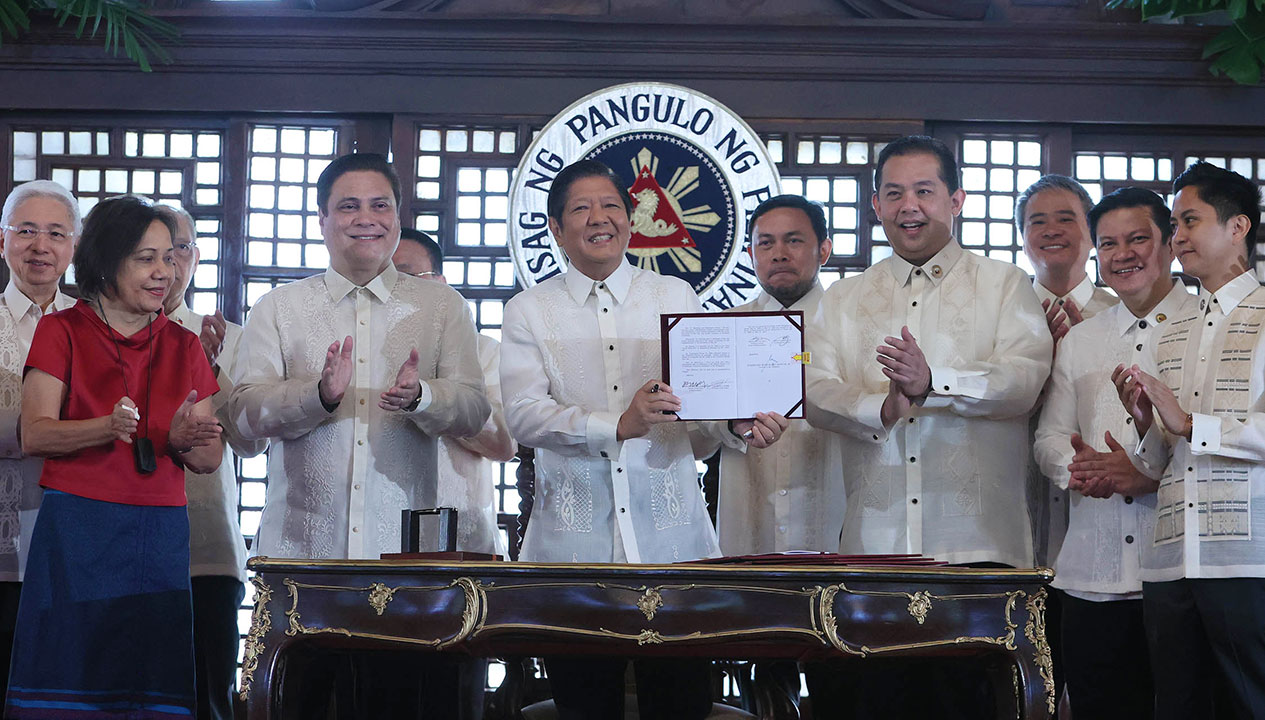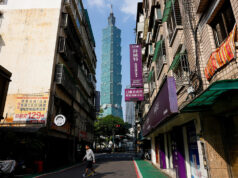Rules for Maharlika fund released

THE PHILIPPINES took a step closer to starting the operations of its first sovereign wealth fund with the release of the implementing rules and regulations (IRR) for the Maharlika Investment Fund (MIF).
“The MIF will serve as a crucial financing mechanism to widen fiscal space, ease the burden on local funds, and reduce reliance on official development assistance (ODA) in funding big-ticket projects such as those specified in the recently approved Infrastructure Flagship Project (IFP) list,” Finance Secretary Benjamin E. Diokno said in a statement.
In July, President Ferdinand R. Marcos, Jr. signed into law Republic Act No. 11954, which created the Philippines’ first sovereign wealth fund. The IRR, which was published in the Official Gazette on Monday, will take effect on Sept. 12. A copy of the IRR was not yet available on the Official Gazette website as of press time.
“The MIF Act’s IRR is faithful to the law to ensure that the prescribed procedures and guidelines will lead to its harmonized application,” National Treasurer Rosalia V. de Leon said.
Ms. De Leon said the Bureau of the Treasury (BTr), Development Bank of the Philippines (DBP), and Land Bank of the Philippines (LANDBANK) worked to ensure the IRR is consistent with the MIF Act.
The fund will be managed by the Maharlika Investment Corp. (MIC), which will have an authorized capital stock of P500 billion ($8.9 billion).
Under the law, the MIC’s initial P125-billion funding will come from the National Government (P50 billion), LANDBANK (P50 billion) and DBP (P25 billion).
The National Government will source its P50-billion contribution from 100% of the dividends of the Bangko Sentral ng Pilipinas (BSP) for the first two years, and the 10% share from Philippine Amusement and Gaming Corp.’s income for five years. It will also source its contribution to the fund from a 10% share of revenues from gaming operations of other government-owned gaming operators and regulators; proceeds from the privatization of government assets; and other sources such as royalties and/or special assessments for a period of five years.
“Other government financial institutions and government-owned and -controlled corporations may invest in the MIF as well… However, those providing social security and public health insurance services are absolutely prohibited from investing in the MIF,” the Department of Finance (DoF) said.
INVESTMENTS
According to the DoF, the IRR states that the MIC is authorized to “invest in a wide range of products, activities and projects, to wit: cash and other tradable commodities; fixed-income instruments issued by sovereigns; domestic and foreign corporate bonds; listed or unlisted equities; and Islamic investments, such as Sukuk bonds, among others.”
The MIC may also issue bonds, debentures, and securities, but these will not be guaranteed by the Philippine government.
“We will pursue public road networks, tollways, railways, green energy, water resources, agro-industrial ventures, and telecommunications. These critical areas offer high rates of return and significant socioeconomic impact,” Mr. Diokno said.
He said that the fund can also be used for “green and blue projects, countryside development, environment, social, and governance and cutting-edge technologies.”
Meanwhile, Mr. Diokno said the “search is on” for the president and chief executive officer (CEO) of the MIC, as well as other board members.
The MIC board will be composed of the Finance secretary as ex-officio chair, the MIC president and CEO as the vice chair, LANDBANK president and CEO, DBP president and CEO, two regular directors and three independent directors. The board members’ qualifications are “explicitly set out” in the IRR, the DoF said.
“The success of the implementation of the MIF hinges on selection of the best people to oversee and manage the Fund and strict compliance with the provisions of the law. This is why we made sure to include all possible safeguards in the IRR, ensuring that all our bases are covered,” Mr. Diokno said.
The MIC will also be guided by an advisory body composed of secretaries of the Department of Budget and Management, the National Economic and Development Authority, and the national treasurer.
“The advisory body met for the first time in Tokyo, Japan where they attended the public-private partnerships (PPP) and MIF session. The session was held in the JICA headquarters. It serves as an avenue to brief Japanese trading houses, financial institutions, Japanese government agencies, multilateral institutions, and the private sector on their possible involvement in PPP projects in the Philippines and the MIF,” Mr. Diokno said.
The DoF also said that the IRR contains the list of penalties “to ensure the integrity of the Fund.”
Penalties range from P1 million to P15 million and imprisonment of six to 20 years for offenses such as “willfully holding office while in possession of any disqualification; knowingly certifying the corporation’s financial statements despite its gross incompleteness or inaccuracy; willingly allowing oneself to be used for fraud; and failure to sanction, report, or file appropriate action for graft and corrupt practices.” — Luisa Maria Jacinta C. Jocson



